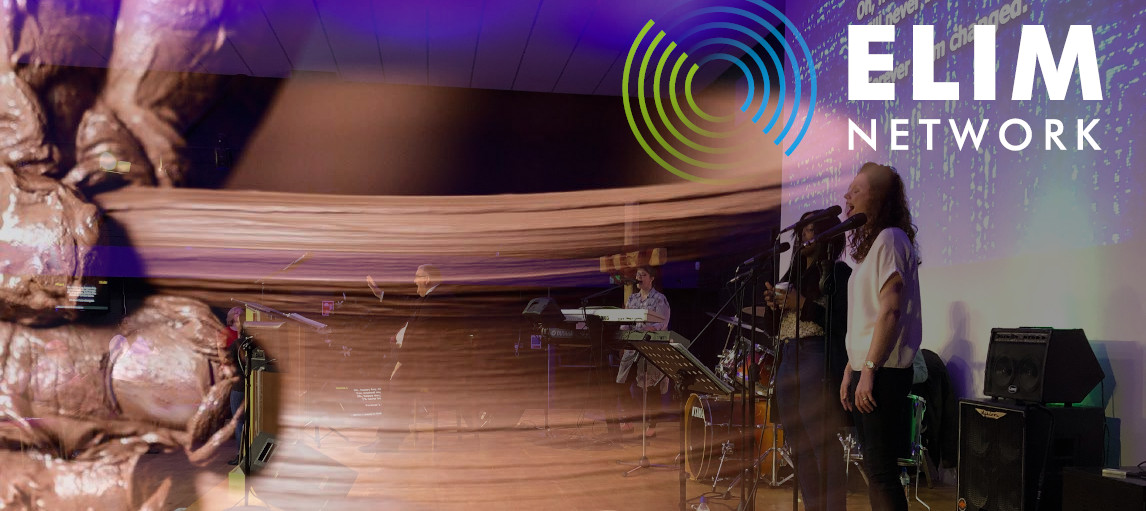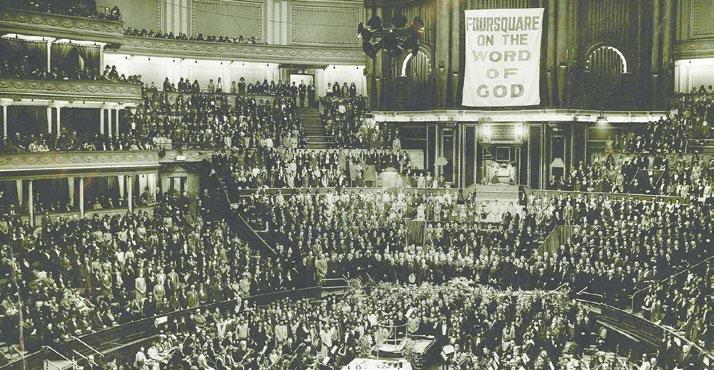
Reshaping Elim Network for the future
The Elim Network has been instrumental in Pentecostal mission for almost 100 years. And now a refreshed structure is serving a growing number of churches and ministries
Did you know that when God moved mightily in the UK in the 1920s, an amazing opportunity to engage with Elim was birthed that helped facilitate Pentecostal mission when no one else wanted to know?
The Elim Network (formerly known as Elim Church Incorporated) helped independent churches come into an outpouring of the Spirit while historic denominations backed away – a move that seems prophetic today.
With such a rich history, it is only natural that Elim is keen to keep this group of churches healthy and vibrant. That’s why, when Chris Cartwright became Elim’s General Superintendent in 2016, a full review was launched that has reimagined and equipped The Elim Network for today.
The Elim Network has long offered independent churches, organisations, ministries, movements or individuals many benefits.
From Elim’s well-resourced headquarters and large church network to its expertise in evangelism, training, charity law and more, those who join the Network are well protected, connected and equipped. They maintain their independence while being a full and meaningful part of Elim.
Back in 2016, explains Elim Network General Secretary Stuart Blount, the group had become disconnected. “We had around 67 members but there were so many we didn’t know,” he says. “We needed to do something because many churches and ministers felt disengaged. We knew members should have a meaningful relationship with Elim, but what should that look like?”
The next year a review team was brought together, which included ECI ministers Phil Weaver, Andy Lancaster and Dave Pickett, along with Regional Leader Dave Campbell and Stuart.
“We began by asking what requirements would signal that a church was connected with us and what Elim could bring to the table,” says Stuart.
From this, a refreshed membership offer was created for the renamed Elim Network, including a more robust application process, a promise of and requirement for regular communication with Elim, and a new Elim Network leadership team. To improve communication, minister Tom Skelton was recently employed as part-time administrator.
An invitation was sent to existing members to sign up to this more structured but more engaging offer.
“Some churches politely bowed out, recognising they’d been disconnected for a while or were in a different season. Quite a few didn’t respond. Others were keen to remain involved,” says Stuart.
Naturally, the Network was reshaped significantly as a result. The review began with 67 members and ended with 38. This might sound like quite a cull, but Stuart and Tom are excited for the future.
“We’ve got a great offer for members who want to be connected with an organisation which can resource them, support them and open up a panorama of relationships,” says Stuart.
Membership is already growing, adds Tom.
“ Three or four of those 38 are newcomers and there are others going through the application process too. There are also some who are moving on to become full Alliance members,” he says. The significance of the changes, he says, lies in the fact they prepare existing and potential Elim Network members for the future.
There are independent churches which want to guarantee their legacy in the face of leadership changes and legislation, for example. There are others looking for a home among other Spirit-filled movements at a time when historical denominations could be facing seismic change.
Whatever the motivation, the Elim Network’s strength lies in the reason it was launched.
“People want to connect with something that shares their heart for Pentecostal mission,” says Stuart. “The Elim Network helps our movement have a far more expansive view and opportunity to reach the nation.”
 Founder George Jeffreys speaks at one of Elim’s annual events in the Royal Albert Hall
Founder George Jeffreys speaks at one of Elim’s annual events in the Royal Albert Hall
The journey so far for the Network
1915: Elim was founded by George Jeffreys. He and his friends preached, started churches and witnessed a move of God that was characterised by miraculous healings and an explosion in the number of people becoming Christians.
1926: The Elim Network (then called Elim Church Incorporated) was founded. Several independent churches were keen to affiliate with what God was doing through Elim and build links with other like - minded churches . Their Pentecostal beliefs and practices meant they would not be welcomed by other historical denominations. Elim itself was not yet a denomination, however, so the ECI was created.
1920s-1930s: During a remarkable decade of evangelistic crusades the ECI grew as more independent churches came into the out- pouring of the Spirit.
1934: The Elim movement was officially formed, offering a second and full level of ‘Alliance’ membership.
1940s: Elim was dramatically affected by WW2 and Elim’s split from its founder, George Jeffreys, who founded a small new movement of independent churches called The Bible Pattern Church.
1950s-1970s: ECI numbers fell significantly to a handful of historic ECI churches during a fresh push into evangelism and church planting by the Alliance.
1980s: As Elim built overseas missions connections, more churches globally connected with the movement under the ECI banner. The ECI grew as more ministers gained ministerial credentials.
1990s: The Executive Council of the day saw an opportunity to invite more independent churches to connect with Elim via ECI, especially in and around London.
2000s: The General Superintendent of the day, John Glass, sought to reform ECI under a new banner of Affiliated Elim Churches.
2016: Chris Cartwright became General Superintendent. He recognised that many ECI churches felt disconnected from Elim and launched a review to ensure they have meaningful relationships.

Could the Elim Network be for you?
What is the Elim Network?
A group of independent churches , organisations , ministries, movements or individuals in the UK and overseas who have a shared passion for mission.
How big is it?
It has 38 members at present, with more in the pipeline.
Who can join?
Any of the above, as long as they share Elim’s foundational beliefs and are Pentecostal in experience and practice. They need to agree with Elim’s beliefs on marriage and sexuality, demonstrate financial stability and integrity and compliant with legislation.
What does it cost?
That depends on the size of a church or staff an organisation has. A ballpark figure is £45-£125 per month for churches and £20-£50 for organisations.
Isn’t it just ‘Elim Lite’?
With its smaller fees and members’ independence, many think the Elim Network is the ‘Lite’ option, with all of the benefits and few of the costs. While there are resources and support for Network partners, they are still outweighed by the benefits of being an Alliance church.
Why join?
For five key benefits: the covering of the Elim movement; to belong to and partner with a large Pentecostal network; to be equipped and trained; for ordination or recognition as an existing minister; for the available resources.
How can I join?
Get in touch by visiting elim.org.uk/network
This article first appeared in the April 2023 edition of Direction Magazine. For further details, please click here.
Enjoy this article? Don't forget to share